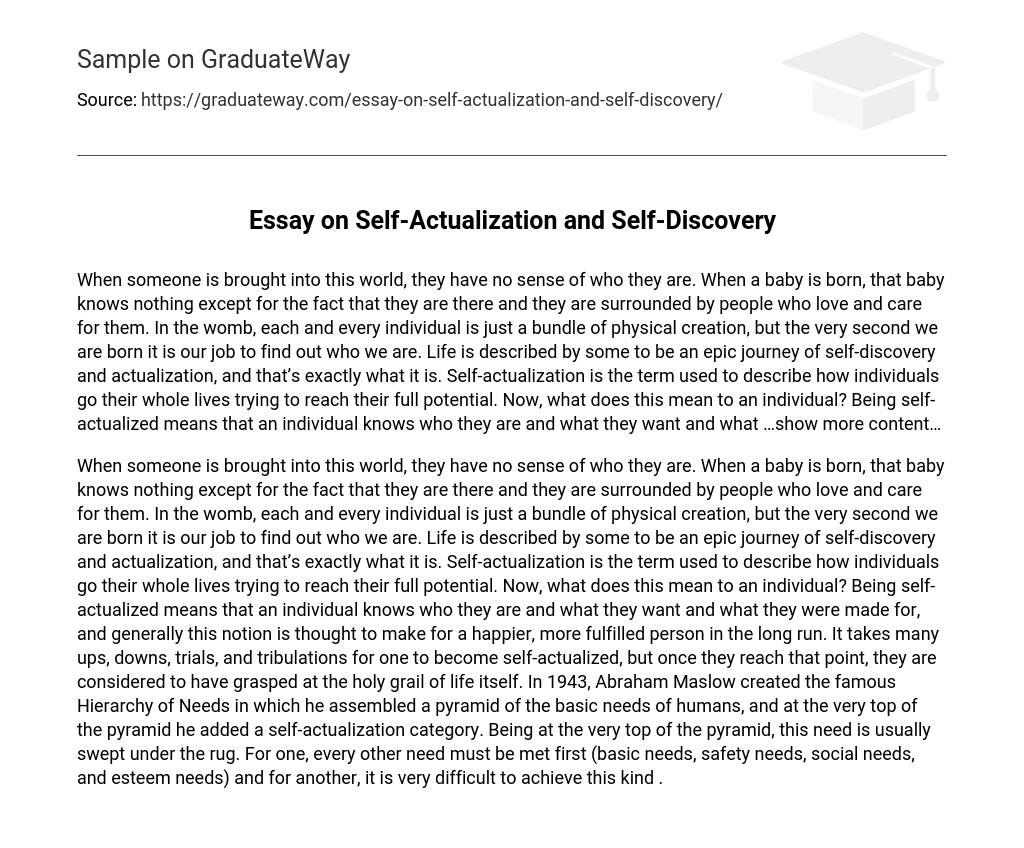When individuals are born, they lack a sense of self. As infants, they only comprehend their own existence and the affection and care provided by others. While in the womb, everyone is merely a physical creation. However, after birth, it becomes their responsibility to ascertain their true identity. Some view life as an incredible voyage of self-discovery and fulfillment – a viewpoint that holds true indeed. The notion of self-actualization entails persistently striving to reach one’s utmost potential throughout life. So what does this imply for each individual? To be self-actualized means comprehending oneself, understanding one’s desires, and actively pursuing personal growth.
Entering the world, individuals lack self-awareness and are focused on their immediate surroundings and received love. Prior to birth, they exist as physical beings, but after being born, it becomes their responsibility to discover who they are. Life is often described as a profound journey of self-discovery and fulfillment, reflecting its true essence.
The pursuit of reaching one’s highest potential in life is known as self-actualization. Thus, being self-actualized means understanding one’s purpose and desires. It is believed that this leads to long-lasting happiness and fulfillment; however, it requires overcoming numerous challenges and obstacles. Nevertheless, once accomplished, it is regarded as the ultimate life goal.
In 1943, Abraham Maslow introduced the well-known Hierarchy of Needs represented by a pyramid with self-actualization at its apex. Despite being positioned at the top of the pyramid, this need often gets overlooked due to two reasons: firstly,every other need must be fulfilled beforehand (basic needs,safety needs,social needs,and esteem needs); secondly,self-actualization presents significant challenges in attaining it.





